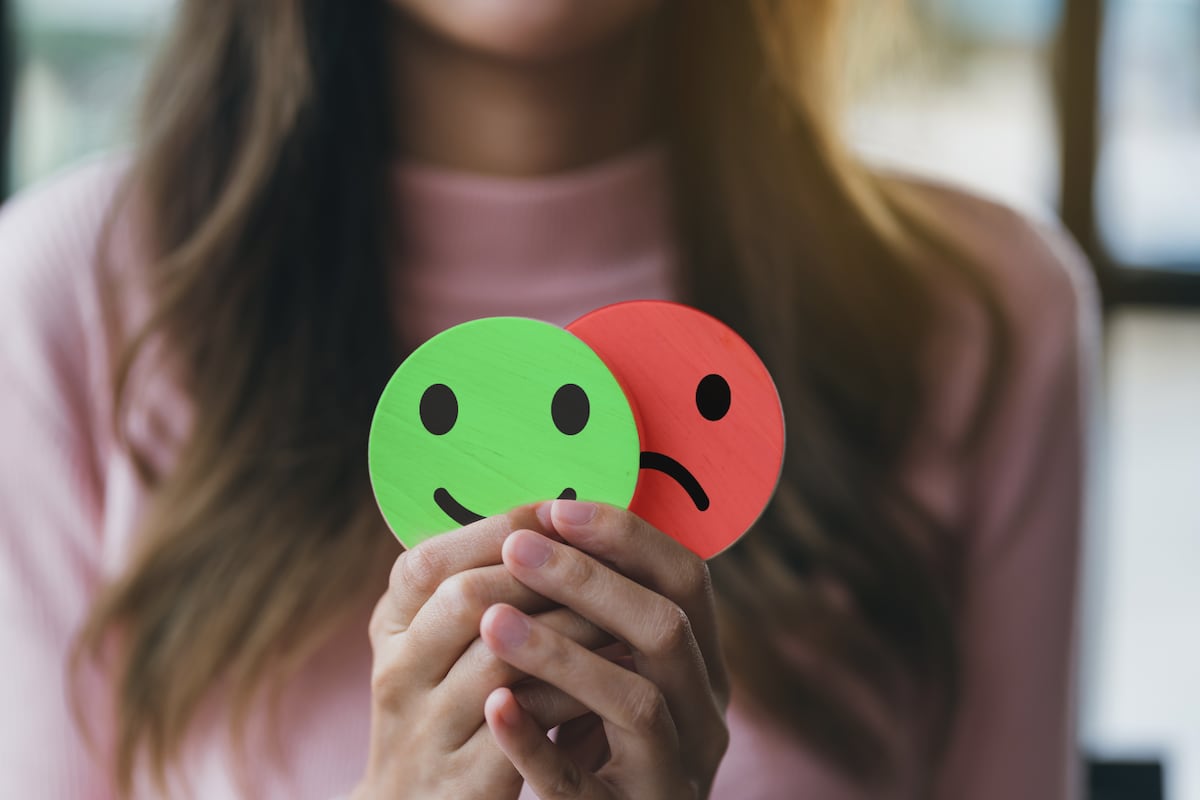Inclining to think that everything bad has a good side can be dangerous. Always looking at the positive side of things is a balm for the mind, in an attempt to turn to the kindest part of all complex situations. In a society that pushes us to escape from discomfort and emptiness through constant stimuli under the motto Only Good Vibes (only good vibes), a positivity can be forced that simplifies more complex emotional processes, especially if a person suffers from a mental disorder. “The idea of a forced optimistic interpretation of our experiences along with the suppression of negative emotions can turn out to be very harmful, and in many cases invalidating and paternalistic,” says psychologist and psychotherapist Alejandra de Pedro González. For the founder of the ADP Psychology center, pain is an essential human condition to grow and advance, but when the search for positivity becomes obsessive and absorbing, real emotions are ignored.
“When we give an emotion space to be felt, it appears, is processed, and then fades away. On the other hand, when we repress the emotion, we run the risk of it remaining entrenched for longer. Thus, someone who does not allow himself to express anger, because he believes that it is bad to feel angry, may begin to have a constant irritable mood, or a person who blocks crying because he is embarrassed may begin to feel depressed. ”he explains.
Expressions such as “be positive” or “everything will be fine”, among others, are present explicitly or subtly in everyday life on social networks, videos or even on cups or other objects, in what is called positive thinking. , which encourages the line between healthy and toxic positivity to blur. “We live in a time of a lot of emotional avoidance, in which, immediately, as soon as we notice unpleasant emotions appearing, we avoid them. Instead of working to improve my self-esteem, if I feel insecure, I can post a photo and wait to receive likesor buy new clothes or cosmetics. As soon as I start to feel sad, instead of writing in a diary, which could help me regulate that sadness, I start watching videos and that distracts me. We lack emotional regulation tools and there are many things in the digital age that serve as emotional patches. And if in itself it is difficult for us to be bad, it is even more difficult for us to communicate that we are bad,” says De Pedro.
When self-care is toxic and does more harm than good
Toxic positivity invalidates negative experiences by promoting the idea that you should always maintain a positive outlook, regardless of the circumstances. And it is paradoxical that, knowing that the most appropriate thing is to move through emotions, positivity is a fashionable term and that the message seems to tell us that happiness is a matter of choice.
A March 2024 study published in the journal of Cognitive Sciences and Human Development, called Toxic positivity and its role among young workershighlighted the importance of recognizing toxic positivity as a critical problem that affects people’s emotional well-being. Faced with this, Maïte Issa, coach personal development expert and author of best seller Your success is inevitable (Editorial Grijalbo), tells how emotions are the basis of everything. “Appearing constant happiness can be frustrating if it is not achieved, so well-being must be promoted focused on the fact that happy states are not a permanent state, but rather emotions that come and go,” he explains.
Another popular tool that forces the mind towards positive and joyful states are the so-called affirmations. Some such as “I am strong”, “I am confident”, “I have good self-esteem”, among others, are expressions that people repeat to themselves with the aim of improving their mood, empowering themselves and increasing their self-esteem. However, if used without understanding what you are doing they can do more harm than good.
How to avoid excess optimism and positivity
In another research published in February 2022 in the scientific journal Nature, An international group of psychologists explored how social pressure to be happy is detrimental to psychological well-being when we inevitably experience negative emotions, especially in countries with high levels of happiness, according to the latest measurements of the World Happiness Index.
The American writer Mark Manson, in his bestseller The Subtle Art of Not Giving a F*ck (2018) talks about how the only path to real empowerment is the acceptance of pain. In the book, he refers to the fact that recognizing forced positive behaviors is the bridge to a healthier attitude towards oneself. The author, who heads one of the most important personal growth websites in the world, explains in three pillars how not to be dominated by excess optimism. In the book, he assures that we must always remember that it is okay not to be okay; as a second step, manage emotions without denying them; and finally, focus on listening to yourself and others, especially when someone expresses a difficult emotion, which should not be silenced with toxic positivity, but rather let them know that what they are feeling is normal and that we can be there to listen to them.
